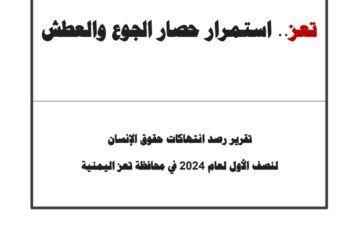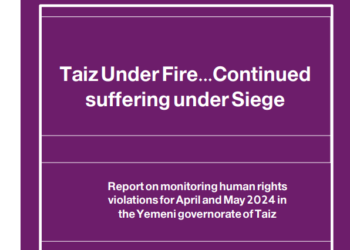Yemeni civil society stresses the importance of developing a vision to enhance the role of women in political participation
Taiz /
Participants in the panel discussion on “The Role of Civil Society in Supporting Women to Face the Political and Humanitarian Challenges Related to the Conflict: Yemen as a Model”, organized by the Human Rights Information and Training Center (Hritc), emphasized the importance of enhancing the role of women in making peace transitions in Yemen and involving women in decision-making positions.
A policy paper prepared by Dr. Adel Al-Shargabi, in a wide discussion of representatives of civil society in Yemen and Yemeni activists, conducted in partnership with the Adalah Center for Human Rights, UN Women and the Group of Nine, and with funding from the Japanese government, presented a framework for a document towards developing a vision for civil society.
In supporting women to meet the political and humanitarian challenges related to the conflict.
The discussions touched on the importance of focusing on the suffering of rural women and highlighting the danger of increasing illiteracy in Yemen, especially among women, due to the exacerbation of the war and the reflection of the conflict on stability and the hitting of educational institutions.
The participants emphasized that women are the most affected by the war in Yemen, and the participants called on all parties to remedy the marginalization path that is practiced against the representation of women in political affairs and the need to involve them in the political decision in Yemen. This enhances the peace process in Yemen, safeguards rights, and contributes to creating the desired stability.
In the symposium, Attorney Assem Rababaa, Head of Adalah, stressed the importance of this step at the present time and work to enhance the role of women in peacebuilding in Yemen and for civil society in Yemen to actively contribute to developing a proposal for a vision that places the policies of women’s participation in the political process and peacemaking a priority. the society.
A wide number of political figures and leaders of civil society participated in the discussion.
Arafat Abdullatif, Executive Director of the Center, confirmed that the Information Center will work to complete the required policy paper in the coming weeks and absorb all the observations and opinions that filled the discussion and re-formulation and present this in a seminar for the center with the issuance of the document among public publications to make it available to everyone.








